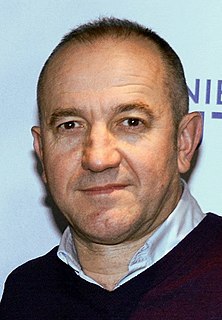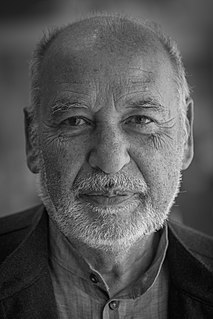A Quote by Jesmyn Ward
While I admire writers who are able to write with a vitality based on order and action, I work in a different vein. I often feel that if I can get the language just right, the language hypnotizes the reader.
Related Quotes
Language designers want to design the perfect language. They want to be able to say, 'My language is perfect. It can do everything.' But it's just plain impossible to design a perfect language, because there are two ways to look at a language. One way is by looking at what can be done with that language. The other is by looking at how we feel using that language-how we feel while programming.
To observe the world carefully, to write a lot and often, on a schedule if necessary, to use the dictionary a lot, to look up word origins, to analyze closely the work of writers you admire, to read not only contemporaries but writers of the past, to learn at least one foreign language, to live an interesting life outside of writing.
Music is a language and different people who come along are each using that language to do something different, but all coming at it in a similar vein inasmuch as it's always community based and for the most part nonprofit. Most bands don't ever come within a mile of profit - clearly these people are not playing music to make money.
Yiddish, originally, in Eastern Europe was considered the language of children, of the illiterate, of women. And 500 years later, by the 19th century, by the 18th century, writers realized that, in order to communicate with the masses, they could no longer write in Hebrew. They needed to write in Yiddish, the language of the population.
We live in a world filled with language. Language imparts identity, meaning, and perspective to our human community. Writers are either polluters or part of the clean-up team. Just as the language of power and greed has the potential to destroy us, the language of reason and empathy has the power to save us. Writers can inspire a kinder, fairer, more beautiful world, or invite selfishness, stereotyping, and violence. Writers can unite people or divide them.
I would give them (aspiring writers) the oldest advice in the craft: Read and write. Read a lot. Read new authors and established ones, read people whose work is in the same vein as yours and those whose genre is totally different. You've heard of chain-smokers. Writers, especially beginners, need to be chain-readers. And lastly, write every day. Write about things that get under your skin and keep you up at night.
It's just nice to be able to communicate and be able to identify with a lot of different cultures. I have no idea what it would be like to be just one thing and speak one language. I feel enormously privileged to travel and be able to mingle and speak to people that, had I only known English, I wouldn't have been able to meet.
Writers often have a 'drunk' that is different than anyone else's. That's why it's so insidious and so damning. First of all, because they can write when they're drinking - or they think they can. A lot of writers will tell me - and this is the latest one I've heard - you drink while you're thinking about what to write, but when you actually write, you sober up.
Joyce's writing in Dubliners contains some of the most unshowily beautiful sentences in the English language. I learned from him that if you write a good, clean line of English, you can get under a reader's skin. The reader won't even know why, but there you are. Didion, Berger, the many others I mentioned above, and many, many poets I haven't mentioned. Writers of this calibre are the moving targets the rest of us are always chasing.







































